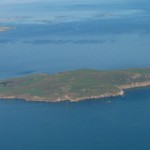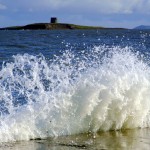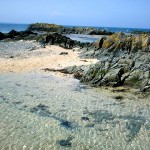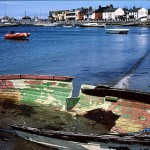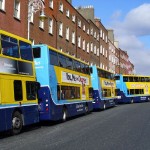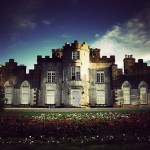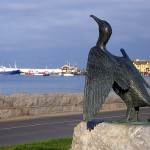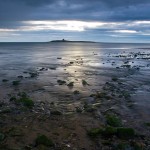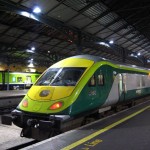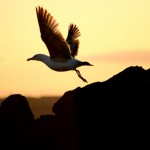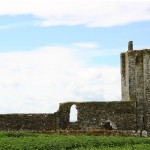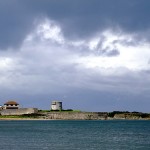History of Fishing in Skerries
In 1784 the fishing industry was at its peak in Skerries and it was the premier fishing port in Ireland. The Irish Parliament paid a bounty of �1 per ton of fish caught by each boat. The largest amount of bounty money for boats in Ireland, over �1,800 was paid to Skerries boats in that year. “The First Report of Irish Fisheries Commission of Inquiry shows that in 1836 there were 38 fishing vessels operating from the harbour. Annual reports furnished to the House of Commons from 1836 to 1921 show that herring fishing was in decline on this part of the coast.
This decline is also shown by the number of fishing boats in Skerries – reduced to 12 by 1859. The report for 1889 states that “At Skerries and Loughshinney there was one trawler but the ground off this coast is mostly worked by Balbriggan and Ringsend trawlers”. In the 1830s there were eight ships carpenters in the town and the nets and lines were made by the fishermen’s families. The Skerries women made oilskins for the men by steeping calico in linseed oil and coating it with tar. The sailors wore long knitted jerseys called sailors’ frocks. Sail making was carried out in lofts in Land’s Lane, in McLoughlin’s Lane and in the Bark Yard, where sails were boiled in oak and cutch to dye them. A rope maker called John Keane made ropes in the RopeWalk; while Mick Walker made hand made nails in the Square. In winter the boats went fishing as far north as Killybegs in Co. Donegal bringing their salt with them to cure the fish. When in Killybegs while the sea was too rough for fishing the Skerries men helped build the local church and the Parish Priest to thank them allocated one pew for the use of Skerries fishermen forever.
With cargoes of cured herrings, boats from Skerries sets off for the Baltic ports of Hamburg, Stettin and Danzig. From these ports they often brought back brightly coloured painted wooden bowls to decorate their homes and amber necklaces and brooches for there loved ones. Some invested in timepieces and in 1838 there were thirty-one new clocks in Skerries. On other trips their cargoes were potatoes to Liverpool and oats from Cork to Bristol. The Ringsend trawlers regularly came into Skerries to unload their catch. They had their own transport to meet them.
The horses and carts went out across the sand and the fish were transferred from the boats to the carts and taken straight to the city. Sport was not omitted from the fishermen’s lives as the Ringsend men always brought their hurleys with them. The men from Skerries often played their colleagues from Ringsend, whose team was called “Star of the Sea”.


